Introduction
In today’s fast-paced world, maintaining a robust immune system has never been more crucial. Our immune system is our body’s defense mechanism against infections, diseases, and other health challenges. Nutrition plays a pivotal role in supporting and enhancing our immune response, and certain foods, known as superfoods, are particularly beneficial. In 2024, incorporating these seven superfoods into your diet can give your immune system the boost it needs to keep you healthy and resilient.
1. Elderberries
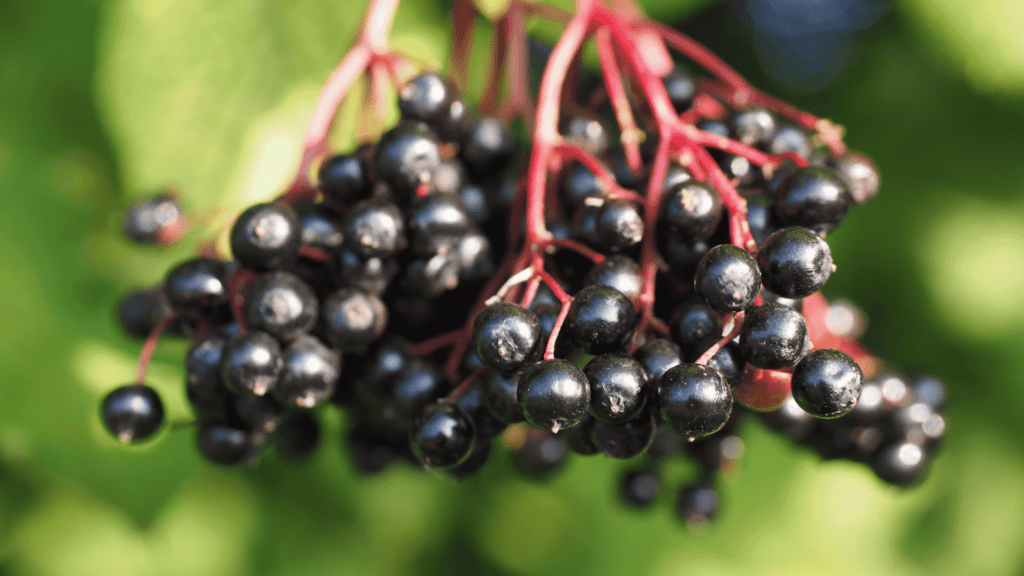
Elderberries have been used for centuries in traditional medicine across various cultures. These dark purple berries are packed with antioxidants and vitamins that are known to bolster the immune system.
Historical Uses of Elderberries
Elderberries have a rich history of use in European, Native American, and other traditional medicines. They were commonly used to treat colds, flu, and other respiratory infections.
Nutritional Profile of Elderberries
Elderberries are rich in vitamins A, B, and C, and are a good source of dietary fiber. They also contain flavonoids, which are potent antioxidants that help reduce inflammation and protect cells from damage.
Benefits for Immune Health
The high antioxidant content in elderberries helps to combat oxidative stress and inflammation, both of which can weaken the immune system. Studies have shown that elderberry extract can reduce the duration and severity of cold and flu symptoms.
How to Incorporate Elderberries into Your Diet
Elderberries can be consumed in various forms, including syrups, teas, and gummies. They can also be used to make jams, jellies, and even elderberry wine. It’s important to note that raw elderberries are toxic and should be cooked before consumption.
2. Turmeric
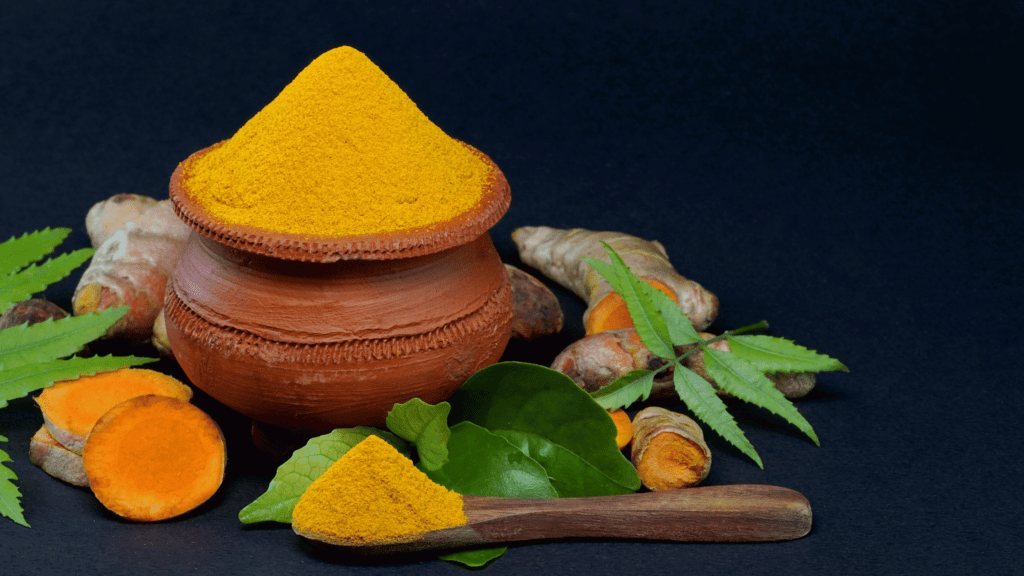
Turmeric is a vibrant yellow spice commonly used in Indian cuisine. Its active ingredient, curcumin, has powerful anti-inflammatory and antioxidant properties.
The Active Ingredient: Curcumin
Curcumin is the main bioactive compound in turmeric, responsible for most of its health benefits. It has been extensively studied for its therapeutic properties.
Anti-Inflammatory and Antioxidant Properties
Curcumin is known for its potent anti-inflammatory effects, which can help reduce chronic inflammation, a major contributor to many diseases. Its antioxidant properties help neutralize free radicals, protecting cells from damage.
Turmeric’s Effect on Immune Function
Curcumin enhances the body’s immune response by modulating the activation of various immune cells, including T cells, B cells, and macrophages. It also boosts the production of antibodies.
Culinary and Supplementation Tips
Turmeric can be added to a variety of dishes, such as curries, soups, and smoothies. For better absorption, it’s often recommended to consume turmeric with black pepper. Curcumin supplements are also available for those looking to increase their intake.
3. Ginger
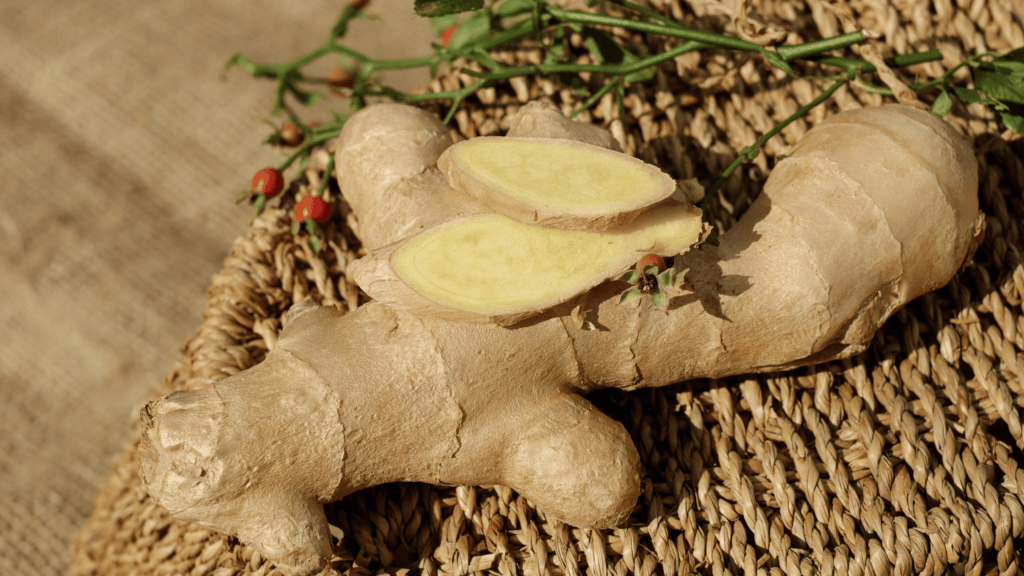
Ginger, a root with a pungent aroma and spicy flavor, has been used for its medicinal properties for thousands of years.
Traditional Medicinal Uses of Ginger
Historically, ginger has been used to treat nausea, digestive issues, and inflammation. It has been a staple in Chinese and Ayurvedic medicine.
Ginger’s Nutritional Components
Ginger is rich in gingerol, a bioactive compound with potent anti-inflammatory and antioxidant effects. It also contains vitamins B6 and C, magnesium, and manganese.
Immune-Boosting Properties
Ginger helps boost the immune system by promoting healthy inflammatory responses and enhancing the activity of immune cells. It also has antimicrobial properties that help fight off infections.
Recipes and Consumption Methods
Ginger can be consumed fresh, dried, or in powdered form. It can be added to teas, soups, stir-fries, and smoothies. Ginger tea, made by steeping fresh ginger slices in hot water, is a popular remedy for colds and sore throats.
4. Garlic
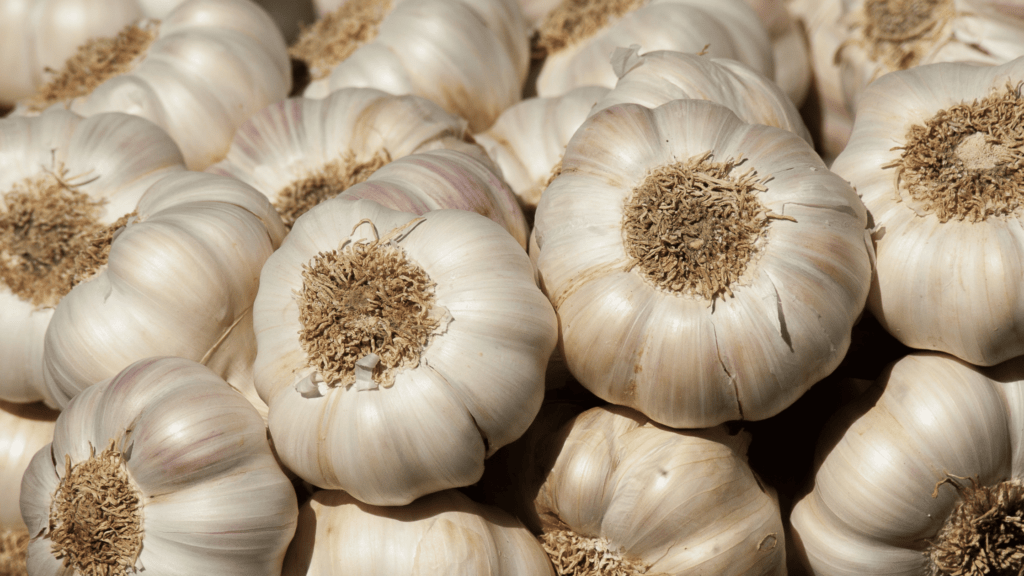
Garlic is a powerful superfood with a long history of medicinal use. It contains compounds that enhance immune function and offer numerous health benefits.
Historical Significance of Garlic
Garlic has been used for its medicinal properties since ancient times. It was even used by soldiers in World War I as an antiseptic to prevent gangrene.
Allicin: The Potent Compound in Garlic
Allicin, formed when garlic is chopped or crushed, is the compound responsible for its immune-boosting effects. It has antimicrobial, antiviral, and antifungal properties.
Garlic’s Immune-Enhancing Effects
Garlic enhances the immune system by stimulating the activity of immune cells and increasing the production of antibodies. Regular consumption of garlic has been linked to a reduced risk of colds and flu.
Ways to Add Garlic to Your Meals
Garlic can be added to a wide range of dishes, including soups, stews, sauces, and dressings. For maximum benefits, it’s best to consume garlic raw or lightly cooked.
5. Spinach
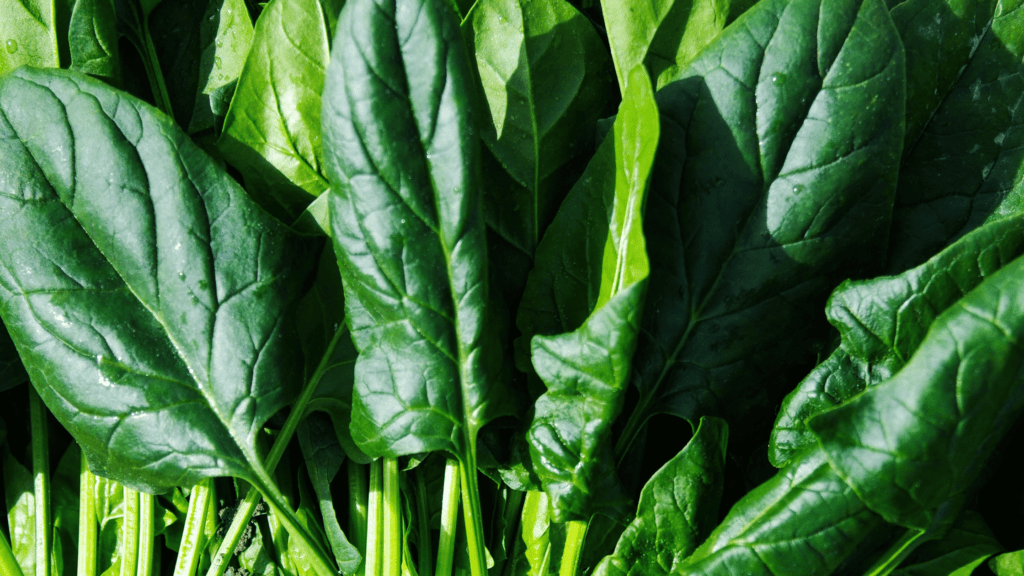
Spinach is a leafy green vegetable that is incredibly nutrient-dense. It’s loaded with vitamins, minerals, and antioxidants that support immune health.
Spinach: A Nutritional Powerhouse
Spinach is low in calories but high in essential nutrients. It’s an excellent source of vitamins A, C, and K, as well as folate, iron, and calcium.
Vitamins and Minerals in Spinach
The vitamins and minerals in spinach play crucial roles in maintaining immune function. Vitamin C, for instance, is essential for the production and function of white blood cells.
Spinach’s Role in Immune Support
The antioxidants in spinach help protect the immune system from damage caused by free radicals. Spinach also contains beta carotene, which has been shown to enhance immune function.
Delicious Spinach Recipes
Spinach can be enjoyed in salads, smoothies, soups, and sautés. It can also be used as a base for pesto or added to omelets and sandwiches.
6. Yogurt
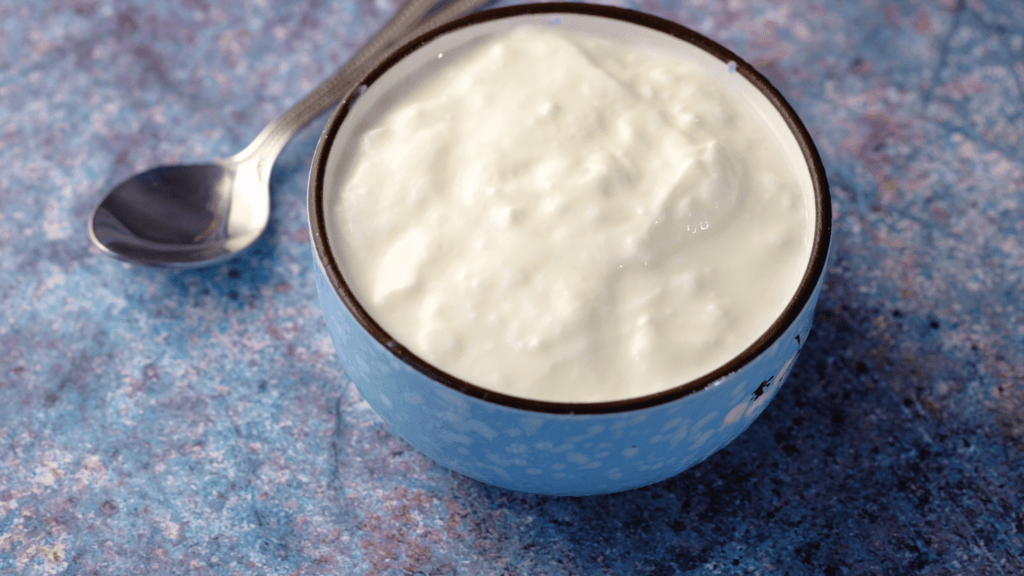
Yogurt is a probiotic-rich food that supports gut health, which is closely linked to immune function.
The Probiotic Advantage
Probiotics are beneficial bacteria that help maintain a healthy balance of gut flora. A healthy gut is essential for a strong immune system.
How Probiotics Enhance Immunity
Probiotics enhance immune function by increasing the production of antibodies and promoting the activity of immune cells. They also help prevent the growth of harmful bacteria in the gut.
Choosing the Right Yogurt
When choosing yogurt, look for products that contain live and active cultures. Greek yogurt, which is higher in protein, is also a good option.
Creative Ways to Enjoy Yogurt
Yogurt can be enjoyed on its own or used in smoothies, parfaits, and dressings. It can also be a healthy substitute for sour cream in recipes.
7. Green Tea
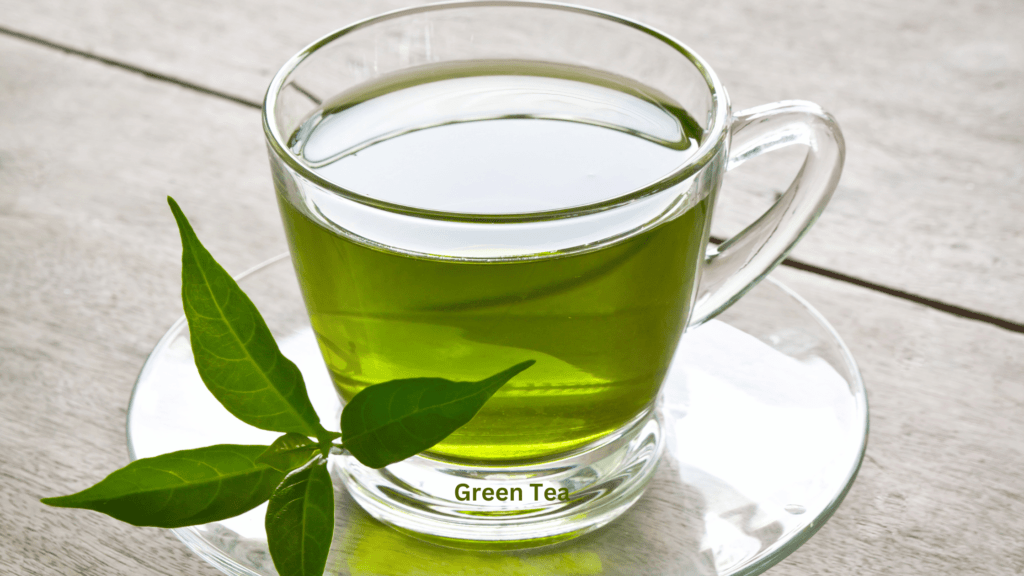
Green tea is a popular beverage known for its numerous health benefits, including its immune-boosting properties.
The History of Green Tea
Green tea has been consumed for thousands of years, particularly in Asian cultures. It has been valued for its medicinal properties and health benefits.
Catechins and Their Health Benefits
Green tea is rich in catechins, a type of antioxidant that has been shown to enhance immune function. The most potent catechin in green tea is epigallocatechin gallate (EGCG).
Green Tea’s Immune-Boosting Potential
The antioxidants in green tea help protect the body from oxidative stress and boost the activity of immune cells. Regular consumption of green tea has been linked to a reduced risk of infections.
Brewing the Perfect Cup of Green Tea
To get the most benefits from green tea, brew it at a lower temperature (around 160-180°F) to avoid bitterness. Steep for 2-3 minutes and enjoy it plain or with a touch of honey.
The Synergy of Superfoods
Combining different superfoods can provide synergistic benefits that enhance overall health and immune function.
Combining Superfoods for Maximum Benefit
Incorporating a variety of superfoods into your diet can help ensure you get a wide range of nutrients and antioxidants. This can lead to a more robust immune response.
Creating a Balanced Diet with Superfoods
A balanced diet that includes a variety of superfoods can help support overall health and well-being. Aim to include multiple superfoods in your meals each day.
Meal Planning for Immune Health
Planning meals that incorporate superfoods can make it easier to maintain a healthy diet. Try to include at least one or two superfoods in each meal.
Lifestyle Factors for Optimal Immunity
In addition to consuming superfoods, other lifestyle factors play a crucial role in maintaining a strong immune system.
Importance of Hydration
Staying hydrated is essential for overall health and immune function. Water helps transport nutrients throughout the body and supports the removal of toxins.
Quality Sleep and Immune Function
Adequate sleep is crucial for a healthy immune system. Lack of sleep can weaken the immune response and increase susceptibility to infections.
The Role of Exercise in Immune Health
Regular exercise can help boost the immune system by promoting good circulation, which allows immune cells to move through the body more efficiently.
Managing Stress for a Strong Immune System
Chronic stress can weaken the immune system, making it more difficult for the body to fight off infections. Practicing stress management techniques, such as meditation and deep breathing, can help support immune health.
Potential Risks and Considerations
While superfoods can offer numerous health benefits, it’s important to consume them in moderation and be aware of potential risks.
Overconsumption of Superfoods
Eating too much of any one superfood can lead to imbalances and potential health issues. It’s important to maintain a varied and balanced diet.
Allergies and Sensitivities
Some superfoods may cause allergic reactions or sensitivities in certain individuals. It’s important to be aware of any food allergies and consult with a healthcare professional if necessary.
Consulting with Healthcare Professionals
Before making significant changes to your diet or adding new supplements, it’s always a good idea to consult with a healthcare professional, especially if you have underlying health conditions.
Real-Life Success Stories
Many people have experienced significant health improvements by incorporating superfoods into their diets.
Testimonials of Improved Health
Numerous individuals have reported enhanced immune function, increased energy levels, and overall better health after including superfoods in their diets.
Case Studies on Superfoods and Immunity
Scientific studies have shown that superfoods can have a positive impact on immune health. These case studies provide evidence of the benefits of consuming superfoods.
Future Trends in Superfood Research
As nutritional science continues to evolve, new superfoods and research on their benefits are constantly emerging.
Emerging Superfoods to Watch
Researchers are continually discovering new foods with potent health benefits. Keep an eye out for emerging superfoods that may become popular in the coming years.
Advances in Nutritional Science
Advances in nutritional science are helping us better understand the mechanisms by which superfoods support immune health. This knowledge can lead to more effective dietary recommendations.
Predictions for Immune-Boosting Foods in 2024
In 2024, we can expect to see continued interest in superfoods and their role in immune health. Emerging research may highlight new foods and strategies for boosting the immune system.
Conclusion
Incorporating superfoods into your diet is a powerful way to support your immune system and overall health. By prioritizing these nutrient-dense foods and making healthy lifestyle choices, you can enhance your body’s natural defenses and achieve optimal wellness in 2024 and beyond.
Follow Humstory for more content.













